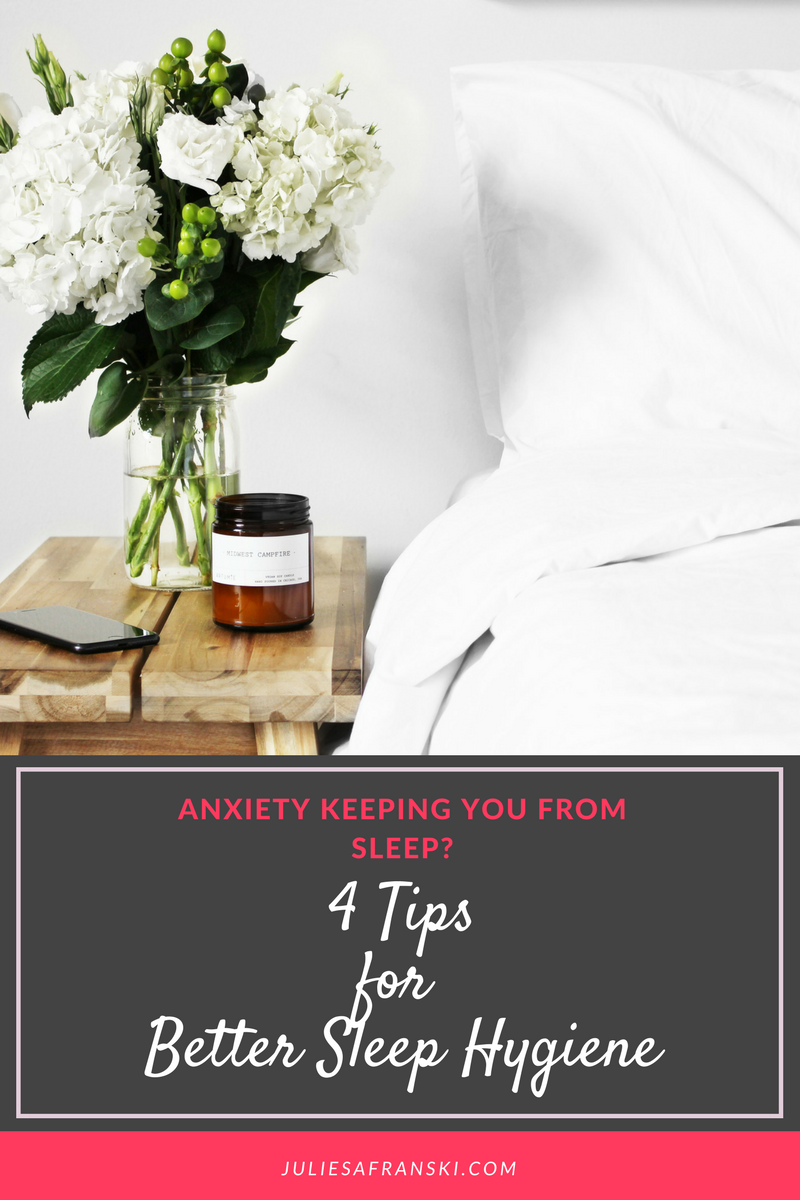Photo by Logan Nolin on Unsplash
Everyone struggles from time-to-time with a poor night’s sleep. An occasional night where you wake up and can’t fall back asleep is not that uncommon. But there are times where you may be having racing thoughts that makes it difficult to unwind at night. You can’t fall asleep when you would like and end up staying up much later than intended. But there are times that you have gone to bed at a reasonable hour but still feel tired in the morning because you were tossing and turning all night long. If any of these scenarios happen to you on a regular basis it may be time to consider what are your sleep habits or sleep hygiene and think about making a change.
One consideration is the food and beverages you are consuming near bedtime. High-fat or spicy foods can be difficult to digest and eating them close to bedtime can make it hard to fall asleep. But on the other hand going to bed hungry could also prevent you from getting to sleep because your stomach is growling. Having a light snack before bed (e.g. yogurt with fruit, cereal with milk, almond butter and bananas) can help. Also taking stock of how much caffeine you have had during the day is important. The timing in which you had that last caffeinated beverage can really affect how you are able to fall asleep. Having that last jolt of caffeine at 4pm may be what is disturbing your sleep when trying to fall asleep at 10:30pm. Alcohol is also a culprit for disturbing sleep patterns. It seems counterintuitive because it makes us fall asleep faster but studies show that it interferes with the quality of sleep.
Exercise is another way to improve your sleep. Whether you workout at your local gym, play team sports, do Pilates, belong to a specialty gym like Cross Fit or Fly Wheel or just grab a pair of shoes to go running or walking outside, getting a cardio workout on a regular basis will help you fall asleep and stay asleep. The health benefits are too numerous to name, not to mention the mental benefits of clearing your head and experiencing the endorphins after exercising and creating an overall better mood. And not to forget yoga, which has a calming affect as well as doing some of these stretches could help before bed.
We all are attached to our various devices and electronics. But we are finding out that looking at them too close to bedtime can interfere with our ability to fall asleep. Turning our devices off before going to sleep and leaving our smart phones, tablets and TV’s out of the bedroom can help us develop better sleep habits. It prevents our brain from misinterpreting the light so we stay awake. Also leaving our phones out of the bedroom, creates that boundary and alerts our brain that we are getting ready to sleep. Not to mention if we leave the phone in the bedroom (even if it is for the alarm), we are still on “alert” to get a text or feel the need to check that work email just one last time. We are not allowing our brains to shut-down and relax for the night.
A great way to ensure a good night sleep is to create a relaxing bedtime routine that you can anywhere no matter where you are. This could entail reading a good book or magazine before bed (not on your laptop, Kindle or phone!) even if it is just a handful of pages a night. Maybe that means for you to take a relaxing bath or shower. Eliminating emotional conversations near bedtime that can keep you awake is also helpful. Drinking some non-caffeinated tea or even hot water with lemon. For some it may mean stretches to relax our muscles from a stressful day. Journaling before bed such as writing the highlights of the day or creating a gratitude journal can be an effective way to try create positive thoughts before bed. But whatever you choose, doing the routine on a regular basis and creating good sleep hygiene signals to your brain that it is time to go to sleep.
Good sleep hygiene is one way to help manage day-to-day. Even changing one of your sleep patterns may be able to produce some relief in your sleeplessness and increase overall health benefits. The more sleep you are able to get, the better our ability to deal with the daily stressors of life.
Julie Safranski, LCSW is a Chicago psychotherapist. She enjoys helping people develop self-care skills including sleep hygiene to enjoy their busy lives. She can be contacted at js@juliesafranski.com
